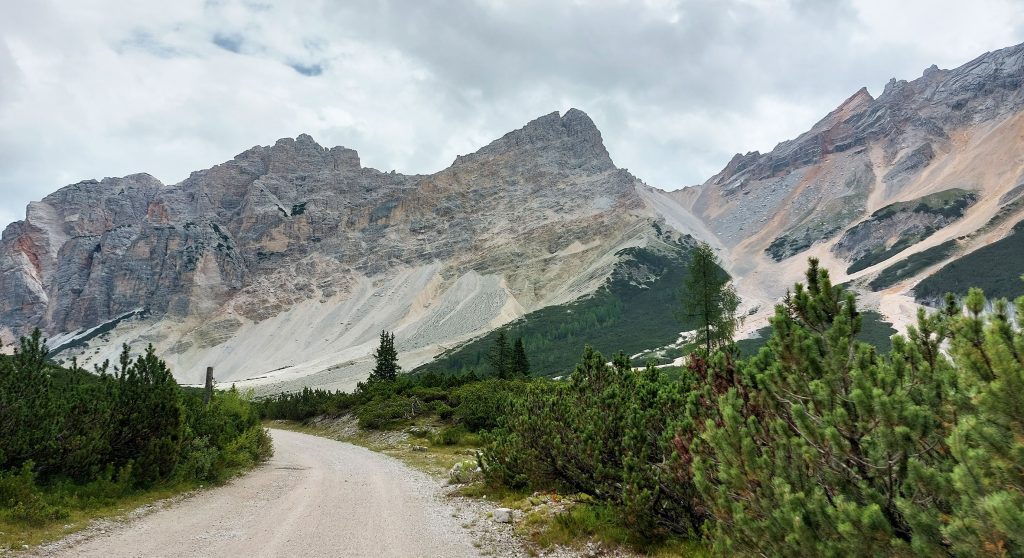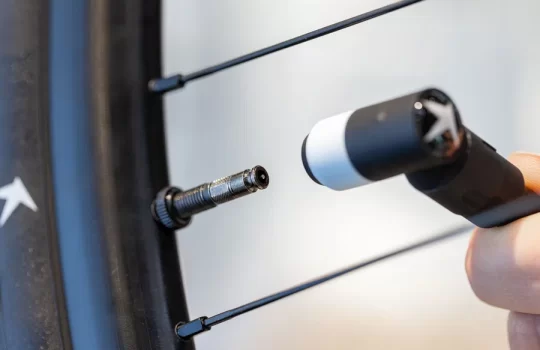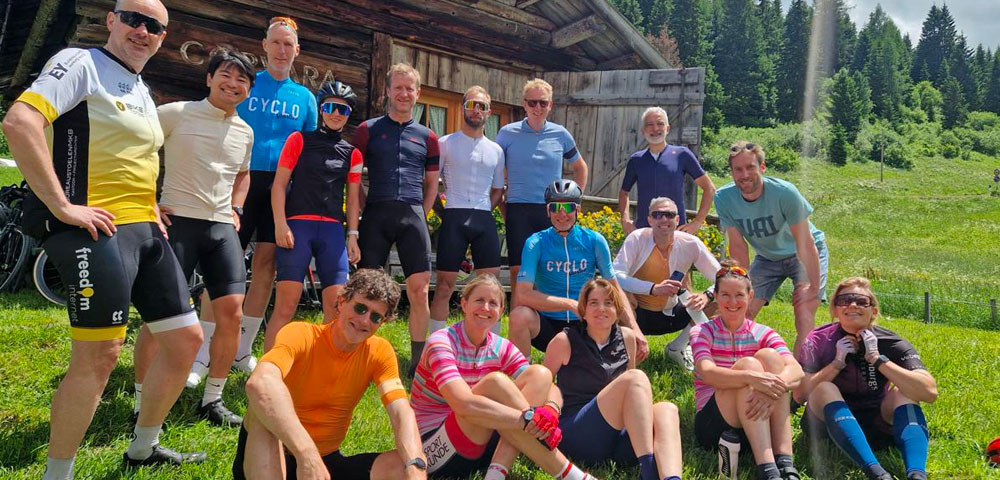How to prepare for a multi-day cycling trip
Tips for rides of 60-80 km per day with 1500-2000 meters of elevation gain

A multi-day cycling trip is a fantastic way to explore new areas, challenge your body and achieve a real athletic performance. If you are planning to cycle for four days in a row, with daily rides of 60-80 kilometres and between 1500-2000 metres of elevation, good preparation is essential. You not only need to be in top physical shape, but also mentally prepared and rested. In this article we will give you five important tips to optimally prepare yourself for such an intensive cycling trip.
1. Build your endurance with targeted training
Most of us are used to cycling regularly, but four days in a row on challenging terrain requires a specific level of endurance. By preparing yourself properly with a training plan, you can strengthen your muscles and mental focus for the rides ahead.
Training tips:
- Long rides: Make sure you do some long rides in the weeks leading up to your bike trip. For example, plan a few rides of 60-80 km with a good amount of elevation. This will not only give you the confidence to ride longer distances, but it will also help you get used to the physical demands of several hours on the bike.
- Climbing training: Since you will be climbing between 1500 and 2000 meters per day, it is important to include hills and mountains in your training. Make sure you do regular climbing training to prepare your leg muscles for the climbs. Start with shorter climbs and work up to longer climbs with a gradual incline.
- Recovery training: Between intense workouts, it is important to take enough rest so that your body has a chance to recover. Add recovery rides of a lower intensity to your schedule, for example rides of 30-40 km on flat terrain.
- Interval training: Add interval training to your routine to improve your power and speed. This will not only help you climb faster, but also help you cope better with the variable intensity of cycling.
Also read: Dolomites Escape
2. Make sure you have the right clothing and bike adjustment
A multi-day bike ride can be physically demanding, so make sure your bike is set up for comfort and efficiency. A well-set up bike will help you avoid fatigue and injury.
Important points to note:
- Saddle height and handlebar position: An incorrect saddle height or handlebar position can lead to discomfort and injury, especially on longer rides. Have your bike adjusted by a professional to ensure everything is perfectly set up for your body.
- Tire pressure: Proper tire pressure is important for both comfort and performance. Overinflated tires can reduce your traction on rough terrain, while underinflated tires can slow you down. Make sure to check your tires before you set off and set the correct pressure based on your weight and the terrain.
- Bicycle accessories: Consider panniers or a backpack to carry your essentials, such as food, water, and spare parts. A bike computer or GPS device is also useful for navigation. Don't forget to bring extra inner tubes, tools, and a small pump in case you get a flat.
Also read: Strade Bianche Trail
3. Nutrition and Hydration: The Key to a Successful Multi-Day
When you are cycling intensively for four days, it is essential to manage your energy and hydration well. By taking in the right nutrition and sufficient water, you will continue to perform at the right level and prevent your body from becoming exhausted.
Nutritional tips:
- Before the ride: Start your day with a solid breakfast rich in carbohydrates and proteins. Think oatmeal, whole wheat bread with egg, or an energy-rich smoothie. This will give you the energy you need for the first kilometers.
- During the ride: Try to have a small snack every 30-45 minutes, such as energy bars, bananas, or nuts. It is important to keep your energy levels up, especially during the climbs. You can also take gels or sports drinks with you for a quick boost.
- After the ride: Make sure you eat a recovery meal rich in carbohydrates and protein, such as a chicken sandwich or a smoothie with protein powder, within 30-60 minutes after your ride. This will help your muscles recover faster.
- Hydration: Drink water regularly, especially when the weather is warm. Remember that drinking sports drinks while cycling not only hydrates you, but also replaces electrolytes lost through sweating. Make sure you bring enough water with you and refill your bottle regularly.
Also read: Trento Gravel Escape
4. Mentally prepare for the challenge
Cycling for multiple days in a row can be physically challenging, but it also requires mental strength. You will encounter moments where you struggle, and it is important to be mentally prepared to persevere.
Be mentally prepared:
- Set realistic goals: Break the four days down into smaller, achievable goals. Focus on the day’s ride first, for example “Today I want to climb the 1000 meter climb without stopping” instead of just thinking about the whole journey.
- Positive mindset: Stay positive, even when things get tough. Think of the beautiful views, the satisfaction you feel when you reach the top of a mountain, and the reason you are making this journey.
- Visualization: Before you leave, visualize the success of the trip. Imagine how it will feel to finish the rides and enjoy the adventure. This will help you stay mentally strong, even when your body starts to get tired.
- Listen to your body: If you feel pain or overtired, take a break. It is better to take a short rest than to push your body and risk injury.
Also read: 2025 World Cycling Championship Rwanda
5. Rest and recovery: Allow for recovery between days
On a multi-day bike ride, recovery is just as important as the training itself. Every evening after you ride, you need to give your body a chance to recover for the next day.
Recovery advice:
- Stretch and mobilize your muscles: Take the time to stretch your muscles properly after every ride. Focus especially on your legs, back and hips, which are most stressed during cycling. It not only helps prevent muscle pain, but also promotes your flexibility and recovery.
- Sleep well: Getting enough sleep is essential for recovery. Try to get at least 7-8 hours of sleep every night. This helps your body repair muscle tissue and gain new energy for the next day.
- Use recovery tools: If you can, use recovery tools like a foam roller or massage gun to relieve tight muscles. This will promote recovery and help you keep cycling more smoothly.
Conclusion
A four-day cycling trip with rides of 60-80 km and 1500-2000 meters of elevation is a big challenge, but with the right preparation you can enjoy this experience to the fullest. Train purposefully, make sure you have the right equipment, keep your nutrition and hydration up, and be mentally strong. Don't forget the importance of rest and recovery between rides. With this preparation you will be ready to take on the adventure and spend the four days full of energy and fun. Good luck and enjoy the ride!
Also read: I'm going on a cycling trip and I'm taking with me










